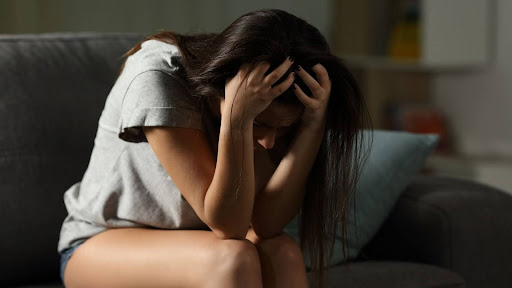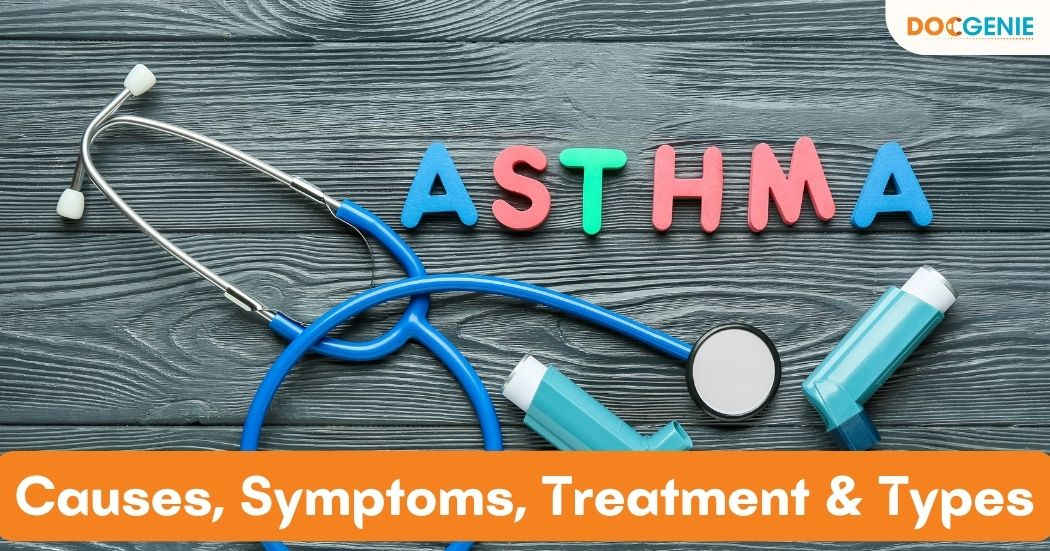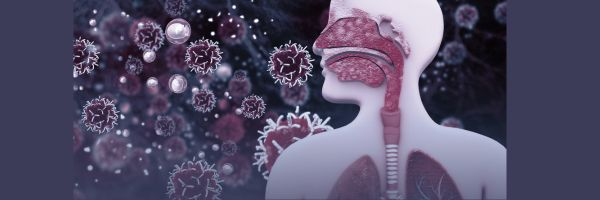Depression: Causes, Types, Treatment
5 min read
By DocGenie , Published on - 11 August 2022Written by Dr. Rachna Kucheria (MBBS MAMC New Delhi, MD AIIMS New Delhi, MD (Family Medicine) USC California), one of the best general physicians in Delhi NCR

As per WHO, about 280 million people worldwide suffer from depression and in India that number is about 56 million. Depression is more than just feeling sad or down for a day or two. It's a serious condition that affects how you feel, think, and act. It's like a heavy cloud that doesn't go away, making everyday activities difficult. Many people do not realise that they suffer from depression and that it can cause short and long term effects to your wellbeing. Covid and its side effects to people’s lifestyle and work habits has only exacerbated the situation. But all this is easily curable.
Let's explore what causes depression, how to recognize its symptoms, the different types, and how it can be treated in a way that's easy for everyone to understand.
What is Depression?
Depression involves persistent feelings of sadness and loss of interest in activities you once enjoyed. It can affect your ability to function at work, school, and in your personal life.
Causes of Depression:
epression can result from a complex mix of factors:
1. Genetics: If depression runs in your family, you are more likely to experience it too.
2. Brain Chemistry: Changes or imbalances in the chemicals in your brain can play a significant role in causing depression.
3. Life Events: Stressful or traumatic events, like the death of a loved one, divorce, or job loss, can trigger depression.
4. Health Problems: Long-term health conditions or chronic pain can lead to feelings of depression.
5. Personality Traits: People who are generally more pessimistic or have low self-esteem may be more susceptible to depression.
6. Lack of social support system : Social isolation and not feeling loved or appreciated or supported is very common amongst people. Extensive use of social media has reduced the amount of time people spend with each. And then the long months of Covid, any way prevented people from socially interacting with each other and for many that has continued. For the elderly, living away from your loved ones and many times all alone without anyone to speak with is a major cause of Depression too
.7. Work from home: Work used to be a great place for social interaction for a vast majority of people. Especially because you spend a significant amount of time on your normal day there. But one of the significant ways Covid has impacted is by companies giving the opportunity for employees to work from home. While that provides a lot of convenience and saves time, it also has created a lot of social isolation and a lack of a significant opportunity to meet and interact with other people.
Types of Depression
There are different forms of depression, each with its own characteristics:
1. Major Depressive Disorder: Severe symptoms that interfere with daily life and last for at least two weeks.
2. Persistent Depressive Disorder (Dysthymia): Less severe symptoms that last for a long time, often for several years.
3. Bipolar Disorder: Characterised by extreme mood swings from high (mania) to low (depression).
4. Seasonal Affective Disorder (SAD): Depression that occurs at certain times of the year, usually in winter when there's less sunlight.5. Postpartum Depression: Depression that affects some women after giving birth.
5. Postpartum Depression: Depression that affects some women after giving birth.
Treatment for Depression
The good news is that depression can be treated. Here are some common treatment options:
1. Therapy: Talking with a Psychiatrist can help you understand and manage your feelings. Cognitive-behavioural therapy (CBT) is a common type of therapy for depression.This is really helpful and nothing to be ashamed about. Especially when you can find a great Psychiatrist to speak with over video from the comfort and privacy of our home. Try www.docgenie.in where you will find a great Psychiatrist who will listen to you and help you out.
2. Medication: Antidepressants can help balance the chemicals in your brain. Do not self medicate- it can be dangerous. Always take medication as prescribed by your doctor.
3. Healthy Lifestyle Choices: Regular exercise, a balanced diet, and plenty of sleep can improve your mood and overall health.
4. Support Groups: Joining a group of people who understand what you're going through can provide comfort and advice.
5. Mindfulness and Relaxation Techniques: Practices like meditation, yoga, and deep breathing can help reduce stress and improve your mood.6. Avoiding Alcohol and Drugs: These substances can worsen depression and interfere with treatment. Pls avoid them.
Helping Someone with Depression
If you know someone who might be depressed, here are ways to support them:
1. Be There: Offer a listening ear and show that you care.
2. Encourage Professional Help: Suggest they talk to a doctor or therapist.
3. Be Patient: Understand that recovery takes time.4.
4.Stay Connected: Keep in touch and invite them to do things, but don't push them too hard.
Conclusion
Depression is a serious but treatable condition. By understanding its causes, symptoms, types, and treatments, you can help yourself or someone you know get the support needed. Remember, it's okay to ask for help and talk about your feelings. You don't have to go through this alone—help is available, and brighter days are ahead. Talk to any one of our Psychiatrists at www.docgenie.in/psychiatrists and they will be more than happy to help you.
If you have any concerns or queries about depression.Consult a highly experienced general physician on DocGenie. All our GPs are available for online video sessions. With DocGenie you can get quality medical help from the comfort of your home, in a cost effective way.
About the Author
Dr. Rachna Kucheria is one of the best general physicians in Delhi NCR. She is a US-trained Physician (Family Practice) on the lines of the old-fashioned ‘Family Doctor’ we grew up with and hope to find again. Her emphasis on early, accurate diagnosis; appropriate (few) medicines; and clear patient communication, sets her apart as one of the most trusted physicians in Delhi. She is licensed to practice medicine both in India & California



